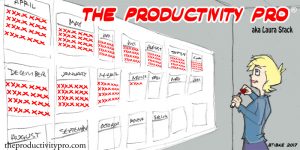
“If you don't know your own value, someone will tell you your value, and it'll be less than what you're worth.” – Bernard Hopkins, American middleweight and light heavyweight boxing champion. Every time you make a task, product, or service cheaper or easier, you've added value to your organization. The same is true if you invent something new, creatively solve a problem, or find a way to do something more efficiently. Every gain boosts your productivity, and enough of these gains improve the organization's bottom line. Some researchers put a heavy emphasis on focusing on value-added activities at the expense of all else, so you can keep pushing your productivity higher. Others de-emphasize an aggressive focus on value-added activities, because let's face facts: in most jobs, you … [Read more...]











